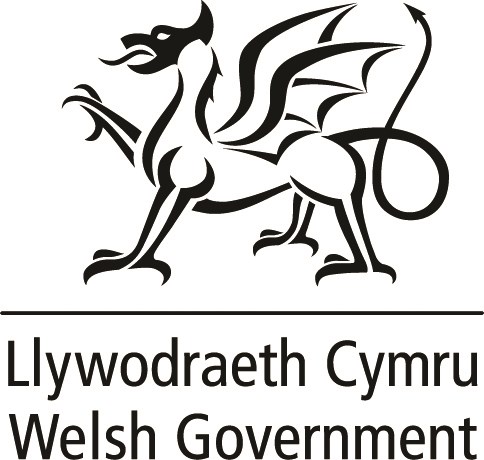
“Protect your flocks now, to avoid losing them to avian flu” – Wales’ Chief Vet
“Angen gwarchod eich adar nawr, rhag eu colli i ffliw adar" – Prif Swyddog Milfeddygol Cymru
Poultry keepers need to take action now to make sure they have biosecurity measures in place to protect their birds, or risk losing their flocks to bird flu, the Chief Vet for Wales, Christianne Glossop, has said today.
The warning has come as the UK as a whole faces its most significant bird flu season ever. Over 50 cases have been recorded to date in kept birds, with three in Wales.
New housing measures were introduced last month to stop the disease from spreading, which means keepers are legally required to keep birds indoors and follow biosecurity measures.*
Wild birds and other wildlife can spread the disease so it is vital to not allow wild birds to mix with chickens, ducks, geese or other birds.
People can also spread the disease on their clothes and shoes so before going into bird enclosures you should wash your hands, and change or clean and disinfect your footwear.
Whilst the main source of infection comes from migratory wild birds, those failing to implement these measures risk infecting their own flocks by walking the virus into their holdings.
The risk to human health from this strain of the avian influenza virus is very low. It is safe to eat poultry meat and eggs as usual.
Wales Chief Veterinary Officer Christianne Glossop said: “We are currently seeing unprecedented levels of bird flu across the UK, and bird keepers must ensure they implement the very highest levels of biosecurity to protect their flocks. This applies whether you have one bird or a large flock.
“Excellent biosecurity if the best thing you can do to protect your birds from this disease. Without it your flocks will be at risk.
“An outbreak of bird flu in a flock is a devastating experience. Please ensure you keep your birds protected and limit the spread of the disease.”
Poultry keepers must do the following:
house or net all poultry and captive birds to keep them separate from wild birds;
- cleanse and disinfect clothing, equipment and vehicles before and after contact with poultry and captive birds – if practical, use disposable protective clothing;
- where possible change their footwear before entering sheds housing poultry and captive birds. If not, then ensure they are thoroughly cleaned and disinfected;
- reduce the movement of people, vehicles or equipment to and from areas where poultry and captive birds are kept, to minimise contamination from manure, slurry and other products, and use effective vermin control;
- thoroughly cleanse and disinfect housing on a continuous basis;
- keep fresh disinfectant at the right concentration at all farm and poultry housing entry and exit points; and
- minimise direct and indirect contact between poultry and captive birds and wild birds, including making sure all feed and water is not accessible to wild birds.
We would encourage all keepers to register their birds on the Poultry Register. This is a legal requirement if you have 50 birds or more. Registering with us means that we will be able to contact you with information or action required should an outbreak happen near you.
Do not touch or pick up any dead or sick birds that you find. If you find dead swans, geese or ducks or other dead wild birds, such as gulls or birds of prey, you should report them to the Defra helpline on 03459 33 55 77.
To find out more on how to register on the Poultry Register and for the latest information regarding avian influenza visit: www.gov.wales/avian-influenza
To report suspicion of disease in Wales contact 0300 303 8268
.* Link to the Housing Measures: : All-Wales Avian Influenza Prevention Zone | GOV.WALES
